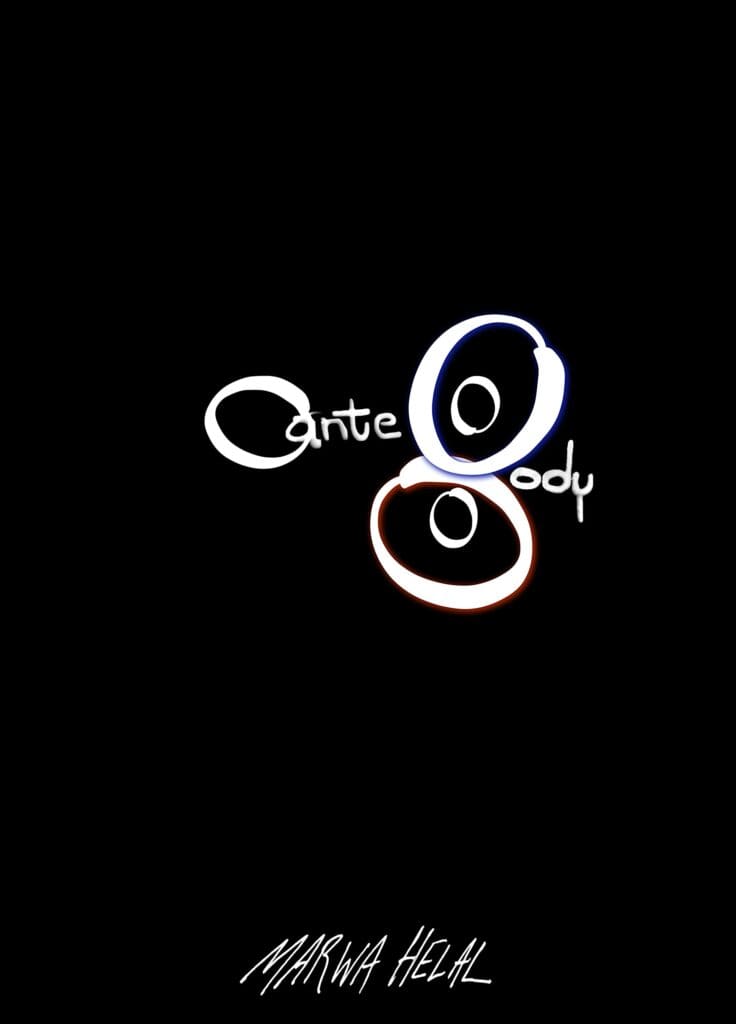The latest collection from Egyptian-born, Brooklyn-based poet Marwa Helal, Ante body (80 pages; Nightboat Books), demonstrates the participatory nature of Helal’s work. The book offers a kaleidoscopic window into the double consciousness of the emigré, her post-migratory grief and dispossession, and the cheeky coping mechanisms that come into play. In her exploration of our post-pandemic political moment, Helal harnesses and discharges an energetic exigency, calling the reader into an honest mindfulness through non-traditional and experimental poetic play. Ante body invites us to trip over language, to recover, and view those stumbles as necessary toward achieving wisdom.
Whatever linguistic baggage the reader might bring into Ante body must be relinquished to do what Helal asks of us: interrogate the power structures that sustain themselves through language, and subvert those monopolies on meaning-making. In other words, consider what might happen were we to make a practice of living at the edges of standard American English:
asks poem this of draft shorter a see to professor first the
device stylistic this sustain could i long how
think you do long how ‘prof dunno i ‘w counter i
™pneumoic hegemonic demonic heteronormative khwhite the
؟itself sustain can
rage road and clown class the all and american im now
be never could i
device no is this ‘besides
A large portion of Ante body is written right-to-left, as is Arabic, Egypt’s most widely spoken language. Helal herself refers to this poetic form as “The Arabic.” In this way, she slyly offers Egyptian-American hybridity as a disruptive mechanism. Reading this section, I blushed at the way my mind strained to read beyond English’s left-to-right orientation. At that moment, I gained a deeper understanding of Helal’s wider project: poetry as a means to push back against interlocking systems of domination and to step toward decolonizing our minds.
Helal uses found material as counter-hegemonic assemblage. She pulls from secondhand sources, distilling a cascade of words, impressions, and encounters spoken to her. She reminds us that iteration is latent in poetry. She sets scenes and cycles through an echo chamber of mini-vignettes, visceral fragments of the past, repeated until they seem to signify myth. From this her poetics take form. Familiar language becomes alien; the colloquial becomes bureaucratic: “lolololol palindrome is lol / pandemic global whole a took it / yourselves institutionalize to you for / lol.”
When considering Ante body as a physical object, one can understand why the body is so crucial to this collection. Almost-contrapuntal blocks of text dance across the page, challenging us to find order in disorder. The words can hardly be contained by the page, nor does Helal set out to contain them to any one page: “The archive will / not be curated the archive will not be / curated the archive will not be curated / the archive will be an outgrowth,” she writes. The text-clad page becomes a body removed from its origins—transient, vivisected, fragmentary, and re-assembled in order to exist in its new context.
No page can ever hold all the simultaneous, cross-temporal memories and experiences of immigrant life, but Ante body gets us closer.

